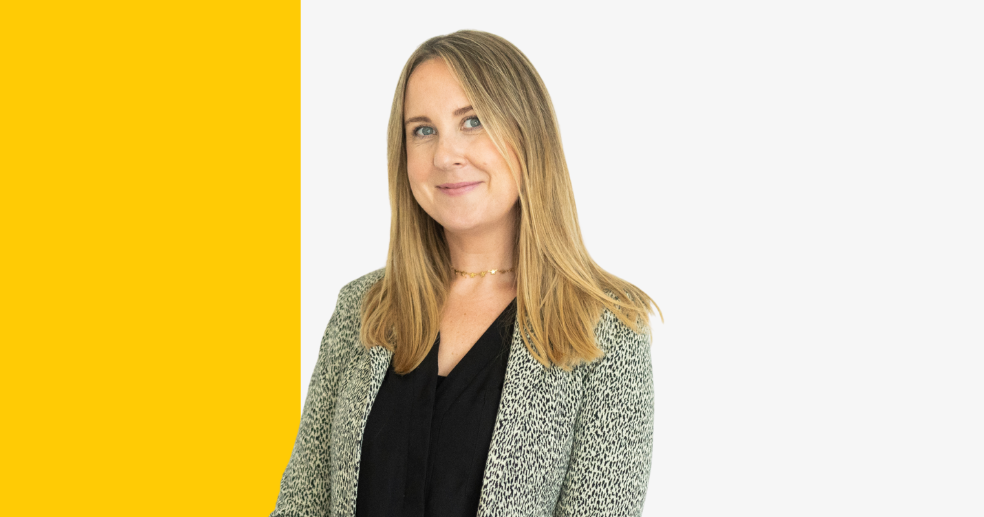Buying your first home is an exciting milestone but it can feel like a huge step. The first hurdle is usually saving for a deposit and with house prices rising in many parts of the UK and the cost of living putting pressure on household budgets, building a deposit may feel daunting but it doesn’t have to feel impossible.
At Hodge, we offer mortgages with deposits as low as 5%, meaning you can get onto the property ladder sooner than you might think.
Why your mortgage deposit goal matters in 2025
Your deposit isn't just a lump sum, it sets the pace for everything else in the home buying process. A mortgage deposit can help you:
-
Reduce the amount of lump sum borrowed and so reduced monthly mortgage payments
-
Access better interest rates
-
Build a stronger foundation of financial security by owning a larger portion of your home from day one.
Recent research by MoneyFacts found the number of peopls taking out lower deposit mortgages of 5% or 10% reached a 17-year high this year. Another survey by Revolut. showed the desire to get onto the property ladder remains high, with 35% Gen Z and 40% of Millennials seeing owning a property as the most effective way to grow wealth. As the average house price remains over £270k in the UK, it puts even greater pressure on the need for a significant deposit in 2025.
In the UK, lenders usually ask for a deposit of between 5 and 20% of the property price, although some mortgages offer 100% financing. The more you can save up front the lower your loan to value (LTV) ratio will be.
What is Loan to Value, or LTV?
LTV is a percentage of the property price that your mortgage covers. The bigger your deposit, the lower your LTV, and the better your mortgage terms are likely to be.
For example, for a property priced £270,000, a 10% deposit would be £27,000, which leaves £243,000 mortgage – or 90% LTV
How much deposit should you aim to save?
Like many financial questions, there isn’t a single answer that fits everyone. A good starting point is to save as much as you can within your means and timeframe, but to work towards a specific goal. To do this, determine how much you could potentially borrow and then plan your deposit accordingly.
For example, using the £270,000 property price example:
- 5% deposit – you’ll need to save £13,500
- 10% deposit – you’ll need to save £27,000
- 20% deposit – you’ll need to save £54,000
An adviser will be able to give customers an educated and whole of market view on what they need to save in line with their longer term affordability. You can find a financial adviser and further personal finance information at https://www.unbiased.co.uk/.
Where do most house deposits come from?
Everyone’s deposit journey will be different. Common sources of house deposits can include:
Personal savings
Regularly putting aside a percentage of your income to reach your deposit goal.
Help from family
Family loans, gifts or early inheritance often help first time buyers.
Government schemes
Schemes such as Lifetime ISAs offer a 25% bonus on savings specifically for those looking to buy a house.
Proceeds from selling a home
If you’re moving from one property to another, the equity can be used towards your deposit
For many first time buyers, the bulk of a deposit comes from regularly saving. Here are five tips to get you started.
Five simple ways to start saving for a house deposit
Tip 1 — Open (or max out) a Lifetime ISA
If you’re aged 18-39, a Lifetime ISA (LISA) is one of the most powerful tools for first time buyers. You can save up to £4,000 per year, until you’re 50, and the government adds a 25% bonus, up to £1,000 annually.
Use it to buy your first home (of a property costing £450,000 or less)
- You must have the LISA open for at least 12 months before using it to purchase a property
- You must make your first payment into your LISA before you turn 40
- The Lifetime ISA limit of £4,000 counts towards your annual ISA limit.
Find out more about a LISA.
Tip 2 — Automate saving on payday
“Pay yourself first” is a simple but effective way to start your savings ball rolling. Set up a standing order to transfer a fixed amount into your savings account on payday. Even £100-200 per month adds up over time. Treat it like a non-negotiable bill like rent or utilities and you’ll soon reap the rewards of your savings plan in action.
Tip 3 — Cut three high-impact monthly costs from your spending
Working out how much you can afford to save often means working out where you can cut back on spending. Big wins often come from reducing larger, non-essential expenses such as:
– Subscriptions and memberships – Research has found the average Brit wastes almost £500 a year on unused subscriptions. Streaming services, food boxes or unused gym memberships could all be quick wins.
– Monthly food spend – look at how much you are spending on takeaways, meals out, grab and go lunches and big supermarket shops. Putting a budget in place and sticking to it could mean eating well and saving well go hand in hand.
– Travel costs – see if there’s any wiggle room in your monthly spend on travel – from reducing fuel to switching to public transport and or shared commuting. It can all add up.
Remember to redirect any savings you make straight into your deposit fund to fast track your progress.
Tip 4 — Boost income with smart side-hustles
Extra income can give your deposit a helping hand. Think selling items and clothes you no longer use, freelancing or using cashback schemes. Just remember to use the cash you make for your savings and not using a bonus income to spend. And always check the tax implications of having an additional income.
Tip 5 — Make your money work harder with the right savings account
Choosing the right savings account can give your savings a little extra push!
Lifetime ISAs
These can be great for long term savings with a government bonus. Hodge don’t currently offer LISA’s but you can find providers through reputable comparison websites.
Easy access accounts
Flexible savings which work well if your monthly contributions will vary. Find out more about our Easy Access savings account.
Fixed term accounts/ Cash ISAs
Can offer completive interest and tax-free growth. Find out more about Hodge’s Cash ISAs (individual savings accounts) and Fixed Rate Bonds.
Set a monthly goal, track your progress and celebrate milestone. Consistent saving, even in small amounts, is the key to reaching your goal.
Why diversification of savings products matters
Using a combination of accounts, ISAs and short term investments can help protect your savings and maximise growth. Different savings accounts can serve different purposes for savers, from boosting returns to keeping funds accessible when you need them.
How Hodge Bank can help
Whether you’re a first time buyer or looking to move up the property ladder, Hodge can help you through savings strategies and mortgage options to help make your deposit work harder.
This article is correct at time of publishing and for general information purposes only. We recommend you speak to a professional financial adviser for advice. You can find a financial adviser and further personal finance information at https://www.unbiased.co.uk/.



